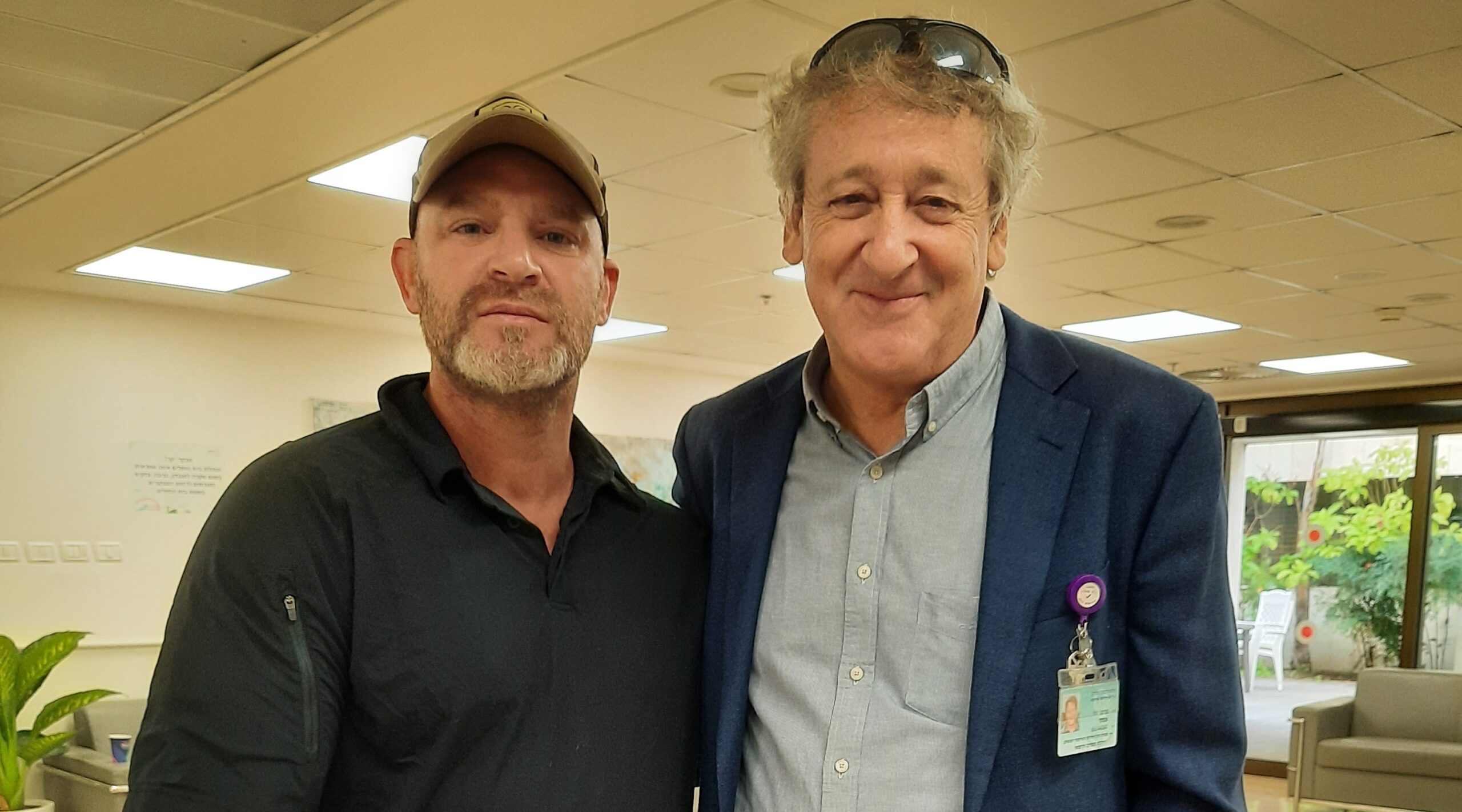Even before the smoke began to clear from Hamas’s deadly Oct. 7 attack, Israeli healthcare professionals realized they were facing a series of unprecedented challenges.
Not only would wounded civilians and soldiers require treatment, but the entire nation was traumatized, including caregivers.
“By the afternoon of October 7, we knew this was a huge event that nobody had ever encountered in Israel,” said Prof. Amitai Ziv, a former combat pilot and director of the Integrated Rehabilitation Hospital at Sheba Medical Center near Tel Aviv. “We immediately realized we will have two major challenges, each one a tsunami. One is the number of patients that require rehabilitation, and two, the largest numbers ever of people suffering from acute stress disorder, which might lead to PTSD — post-traumatic stress disorder.”
Ziv, a physician, is also the founder and director of MSR – the Israel National Center for Medical Simulation at Sheba. The center enables healthcare providers like doctors and nurses to practice challenging clinical procedures and encounters in a simulated environment using tools such as robotics, surgical simulators and even role-playing actors so that real patients are not put in any danger. Since its establishment, over 300,000 healthcare professionals have been trained and certified by MSR.
In the days immediately following Oct 7, MSR switched to focus on new wartime needs. The center transported high-tech, full-body mannequin simulators to train army medical teams serving in both major conflict zones — in the Gaza area and along Israel’s northern border with Lebanon — to improve their trauma management skills and prepare them for the lifesaving scenarios they were about to encounter in the battlefield. The center also used actors for “high-touch” simulations of interactions with people experiencing trauma to help prepare psychosocial teams to manage stress-related issues.
The hostage issue presented the most difficult challenge.
Even if the hostages’ release could be secured, how could they be reintegrated into Israeli life under such extreme circumstances — with relatives still being held by Hamas, family members murdered, their homes destroyed, entire communities displaced and the nation in the midst of an intense war with mounting casualties?
Ziv launched a series of intensive training courses involving simulations to prepare Sheba physicians, psychologists, and social workers, as well as Israel Defense Forces psychosocial professionals, to receive the hostages and accompany them during the early hours and days after their return from captivity. Out of the over 100 captives that were released in November, 30 went to Sheba.
Treating the hostages is just part of Ziv’s war-related work at Sheba, Israel’s largest hospital. As soon as the war started, Ziv began moving around entire departments and retraining staff to add capacity in the rehab hospital, which consists of three divisions: physical, mental and geriatric rehabilitation. Quick renovations added 122 new rehab beds to the 140 existing beds.
“We made a decision that we would not say no to any patient who needs to be here, war- as well as non-war-related, and we do not push anyone out,” Ziv said. “We pushed ourselves to accommodate all evolving patient needs.”
Sheba has received more war-related rehab patients than any other hospital in the country. Most are recovering from complex injuries involving abdominal, surgical, and orthopedic injuries, amputations, or neurologic, spinal, or head injuries. Pain management and mental support are major priorities.
“PTSD is going to be the main, long-lasting condition requiring treatment,” Ziv said. He estimated that the numbers will be in the thousands and warned that even before the war, Israel had a 40% national staffing shortage of mental health professionals.
Yotam Polizer, IsraAID’s CEO, at a field school that the relief organization set up in the southern Israeli city of Eilat to serve Israeli families displaced by the Oct. 7 war. (Yehuda Ben-Itah/IsraAID)
Patients, most of whom spend two to three months in rehab, have access to an array of therapies at Sheba, including physical, occupational, and hydro therapies, as well as complementary therapies such as art, yoga, and even animal-assisted therapy using Sheba’s four trained dogs.
“It doesn’t feel like a hospital,” said Avishai Shoshani, 49, a combat soldier at Sheba injured in both legs during combat in Gaza. “Here you feel like you’re with a bunch of friends. And this is a very important aspect of rehab.”
Unlike most other rehab facilities in Israel, Sheba’s integrated rehabilitation hospital is part of the larger medical center, giving rehab patients full access to the acute care hospital where many of them have been treated initially. The integration helps ensure continuity of care for patients who need surgery and other medical treatments during the rehabilitation process.
The war also brought an unprecedented partnership between Sheba and IsraAID, the Israeli disaster relief organization that provides emergency medical response, post-trauma mental health support, and humanitarian relief after disasters such as earthquakes, tsunamis, floods, fires, and wars. IsraAid and Sheba had collaborated in the past on global disasters, but they never before had to work together in Israel.
Both Ziv, 65, and IsraAID CEO Yotam Polizer, 40, are members of a unique group: They are laureates of The Charles Bronfman Prize, an annual $100,000 award given to a Jewish humanitarian under age 50 whose work benefits humankind and is grounded in Jewish values.
The Prize was established in 2004 by the children of Canadian philanthropist Charles Bronfman — Ellen Bronfman Hauptman and Stephen Bronfman together with their spouses Andrew Hauptman and Claudia Blondin Bronfman — to honor their father’s values and philanthropic work.
Ziv received the Prize in 2007 and is now one of the judges on the prize committee; Polizer won the award last year. As part of the prize fellowship, laureates get to know one another and sometimes end up collaborating. IsraAID recently facilitated a partnership with the State of California to donate a field hospital to Sheba.
While IsraAID has worked in many countries, including post-tsunami Japan and post-earthquake Haiti, the current war in Israel is unlike any other disaster it has dealt with because it’s happening at home, Polizer said.
“This is a new challenge for us to give professional humanitarian support while we are at the same time part of the community that is affected,” Polizer said. “Being able to do something, even if it is small, also helps our team from a mental-health perspective. My coping mechanism is doing something and getting into action.”
Soon after Oct. 7, IsraAID began working with displaced Israeli families who had been relocated to hotels from their homes in Israeli communities in the conflict zone.
Ziv, too, is touched personally by the war, as is practically every Israeli. He has two sons who serve in the army reserves, one a surgeon in the medical corps in Gaza. His staffers also have family in the army or friends injured or killed or displaced.
“This is a long journey. We will be dealing with the outcomes of the war for years to come,” Ziv said. “Yet I trust the solidarity and courageous spirit of the Israeli people. These unique, exceptional qualities are of utmost significance for successful rehabilitation — and for resiliency, strength and cohesion of Israeli society.”




